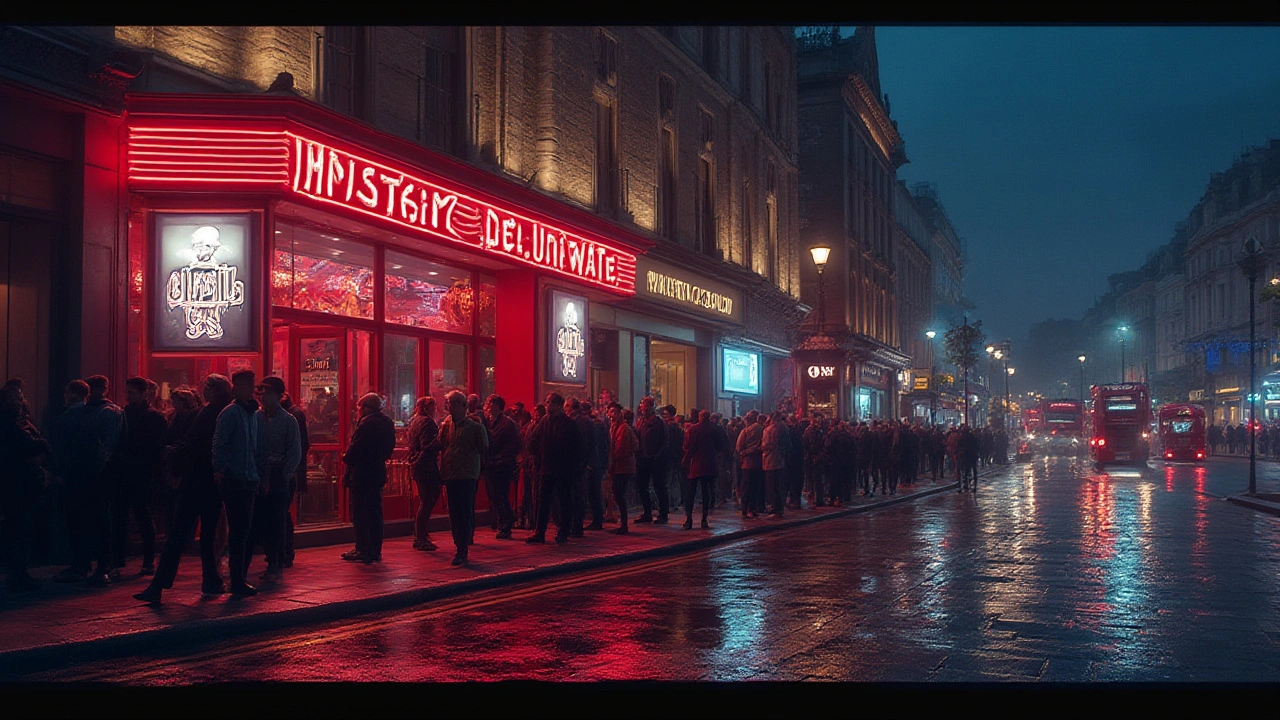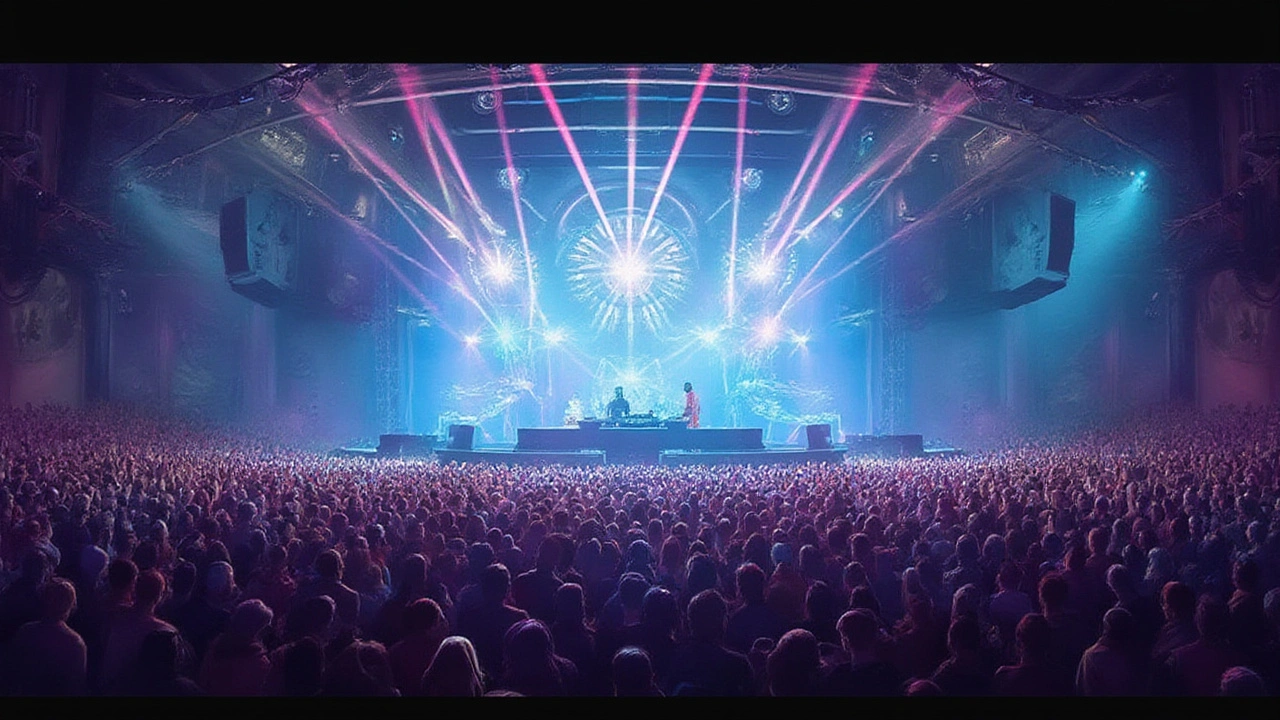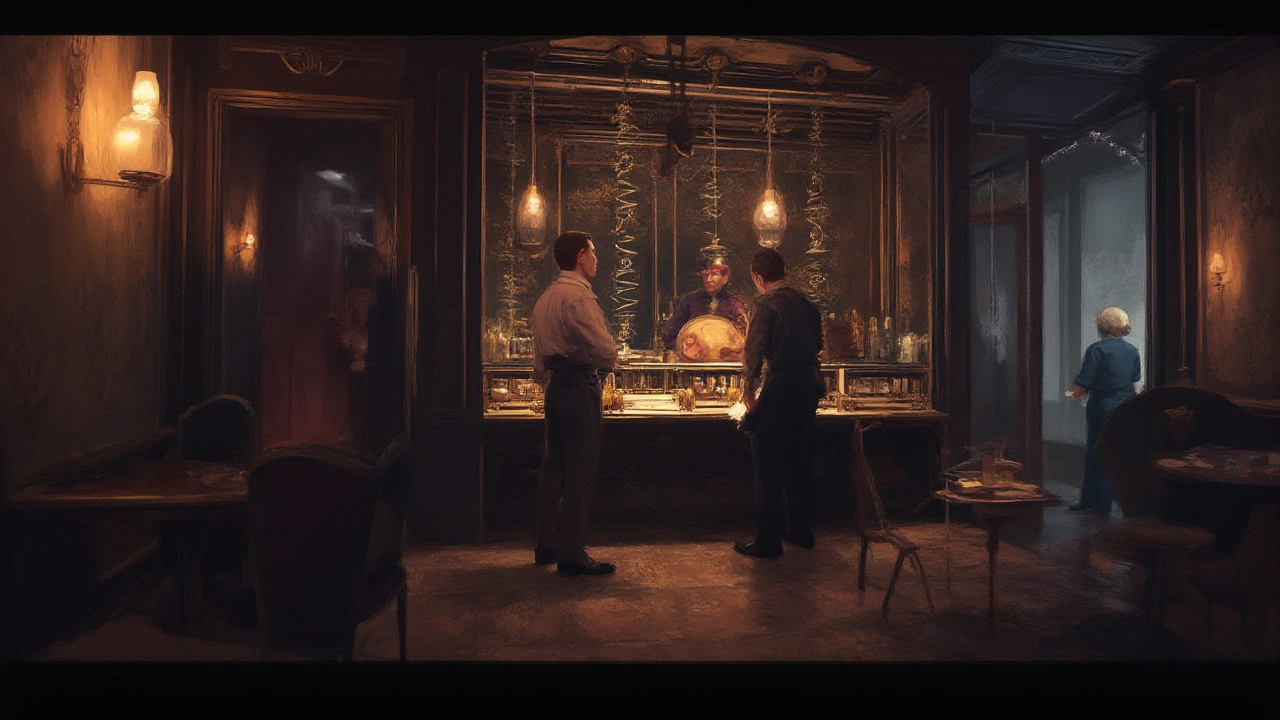Inside London's Ministry of Sound: Nightlife, Music, and Culture Uncovered

Step out into the London night, and there’s that buzz—you can feel it all the way down Borough High Street. It’s not just the usual city hum, but something thumping, alive, almost magnetic. That’s the call of Ministry of Sound—London’s legendary nightclub, still pulling crowds from across the city and beyond, decades after its 1991 opening. London nightlife is competitive, but Ministry stands out like a glowing beacon, mixing music, London’s world-famous energy, and a mad amount of history that you can almost taste in the air. If you’ve ever wondered what keeps this place thriving while so many others fade into memory, you’re not alone.
The Birth of a London Nightlife Icon
History isn’t dry textbooks and dates—not here. Ministry of Sound opened its doors in a converted bus garage in Elephant and Castle, right as London was pushing itself forward in every cultural direction at the start of the ‘90s. DJs and house music ruled the world of clubbing in London, and Ministry hit the sweet spot by importing the concept of New York’s Paradise Garage—a focus on fierce sound and stripped-back space. Unlike other clubs that crammed DJs into corners, Ministry gave audio pride of place. Even today, that legendary sound system is still the heart of the venue. They spent nearly half a million quid installing the very first set-up alone, and the tech’s only gotten wilder since. Walking in, you see actual engineers pacing around; they treat the sound booth with more care than most people treat their own cars.
While London’s club scene is notorious for fleeting trends and pop-up raves, Ministry persistently stands its ground. Acts like Pete Tong, Danny Rampling, and Boy George graced the decks early on. It wasn’t all about the headliners, though; Ministry is where up-and-coming talent could collide with dance music heads, and where entire sub-genres like UK garage and drum and bass carved out their reputations. While places like Fabric and Printworks are musts on any nightlife bucket list, it’s Ministry that carries the weight of tradition, locals’ memories, and global respect.
If you’re new in London or thinking about a trip, here’s the twist: you don’t have to be a proper clubber to appreciate Ministry’s history. The building alone is worth a visit—it still looks a bit industrial and raw. Die-hard fans will tell you the energy in The Box (the main room) is pure magic: strobes, lasers, and that gut-vibrating bass. Two other rooms, the 103 and Baby Box, often run separate parties, so you’re guaranteed a taste of everything London’s music scene has to offer—on just one night out.
Behind Closed Doors: What Really Happens at Ministry?
Here’s what nobody tells you—Ministry’s staff are some of the savviest in the city. Nearly every DJ that’s gone global has played here at least once, but the magic happens off-stage, too. Sound engineers fine-tune the speakers for hours before most clubbers even finish dinner. If you ever spot someone crawling into an awkward corner with a torch in hand, best believe it’s not a punter—it’s a technician adjusting the subwoofers. Lighting crews rehearse set changes like it’s a West End show, with computerised rigs that can shift the mood from euphoric rave to dark, cinematic mystery in seconds.
London’s clubbing tradition includes queueing, and Ministry’s line snaking around the block isn’t just for show. Once you’re in, security is tight but friendly—you’ll see regulars joking with the bouncers who, rumour has it, have stories that could fill a book. Regulars swear by the secret corners of the club, like the outdoor courtyard where you can cool off and meet a weirdly international crowd swapping clubbing tales. There’s always a lost tourist from Milan or Madrid, chinwagging with South London locals about gigs in Brixton or pubs off Brick Lane.
Staff often talk about their ‘Ministry family’—there’s a loyalty here you don’t find everywhere in London. A few bar staff have been around since the early 2000s, and even the newer team get pulled into the rhythm within a few shifts. Fancy a non-alcoholic cocktail or need gluten-free mixers? No problem—they take pride in being ahead of the curve, catering to London’s famously diverse crowd without the pretence you sometimes get in trendier venues.

Music, Legends, and Unforgettable Nights
It’s not hype: some of the most famous club nights in London history happened at Ministry of Sound. Think Hed Kandi, Twice As Nice, or house music’s legendary The Gallery—these events helped put London on the global nightlife map, and they’re still talked about in South Bank coffee shops and afterparties all over the city. The venue books big acts—Annie Mac, Armin van Buuren, and Calvin Harris have lit up the place—but you’ll spot locals going just as mad for homegrown stars, from London-based garage DJs to next-gen drum & bass collectives.
If you’re keen to experience it at its absolute best, late summer and autumn blow up with events tied to Notting Hill Carnival, London Pride, and the university back-to-uni season. There’s no better feeling than walking outside just as the sun’s rising, sweaty, exhausted, and half-deaf from *that* sound system, then grabbing a greasy breakfast at a 24-hour café nearby—proper post-club London tradition.
Want actual music tips? Arrive before midnight for off-peak tickets or guest lists. Ministry gives each resident DJ carte blanche—a chance to spin rare records, test new tracks, and create those moments you’ll only see in London. Even when mega-star nights sell out, you can often squeeze into themed events like throwback 90s parties or collaborations with London College of Fashion for wild, art-driven club nights that mix dance floors with photo installations and experimental visuals.
Practical London Tips for Your Visit
First-time visitor or seasoned local, a night at Ministry works best if you plan ahead. Tickets can vanish fast for headline acts, but regular nights often have last-minute availability online or at the door (just don’t rely on it during summer festival season–that’s when everyone in London turns up). The closest Tube is Elephant & Castle, which looks proper gritty late at night but is full of students and clubbers. If you’re out past the Night Tube hours, loads of bus routes run up to London Bridge, Peckham, or further south, and there are always fast black cabs and Ubers zipping back into central London.
Bags and jackets get checked at the door. Don’t go OTT with your look—London clubbers are stylish but practical. Docs or trainers are the footwear of choice; you’ll do enough dancing to regret heels or dress shoes by 2am. If you want to actually enjoy the legendary sound system, duck into The Box early. People joke you can feel the bass in your bones, and that’s not far off. For clubbers looking to make a full night of it, nearby late-night food joints—like the Lebanese bakeries near Walworth Road or the greasy spoon cafés along Borough Road—are a lifesaver.
Ministry isn’t just for regular club nights, either. It’s hired out for corporate events, dance music album launches, and even creative shoots for brands like River Island and ASOS. Every so often, there are wellness mornings with outdoor yoga and sunrise DJ sets—a proper twist for Londoners bored of gyms and office routines.

Why Ministry of Sound Still Rules London’s Club Scene
Other cities have clubs with bigger capacity or fancier decor, but London’s Ministry of Sound *gets* what makes this city tick. You’ll meet clubbers from Essex and Shoreditch sharing booths, international students sampling their first big London night, old ravers reliving golden years, and music fans who know every beat in The Box by heart. The club has faced closure scares from property developers, survived the smoking ban, and outlasted many once-hyped rivals. Part of its secret? Listening to the crowd. Aftercity’s pandemic lull, Ministry doubled down on bringing live acts, hosting panel talks with DJs, and keeping an open-door feeling that matches London’s own resilience.
If you want a taste of real Ministry of Sound magic, check their listings (the official site and Resident Advisor are golden for this), grab your mates, and get ready for a shock to the senses. It’s where musical culture, clubbing history, and London’s restless spirit crash together under laser lights—and you won’t find that anywhere else.